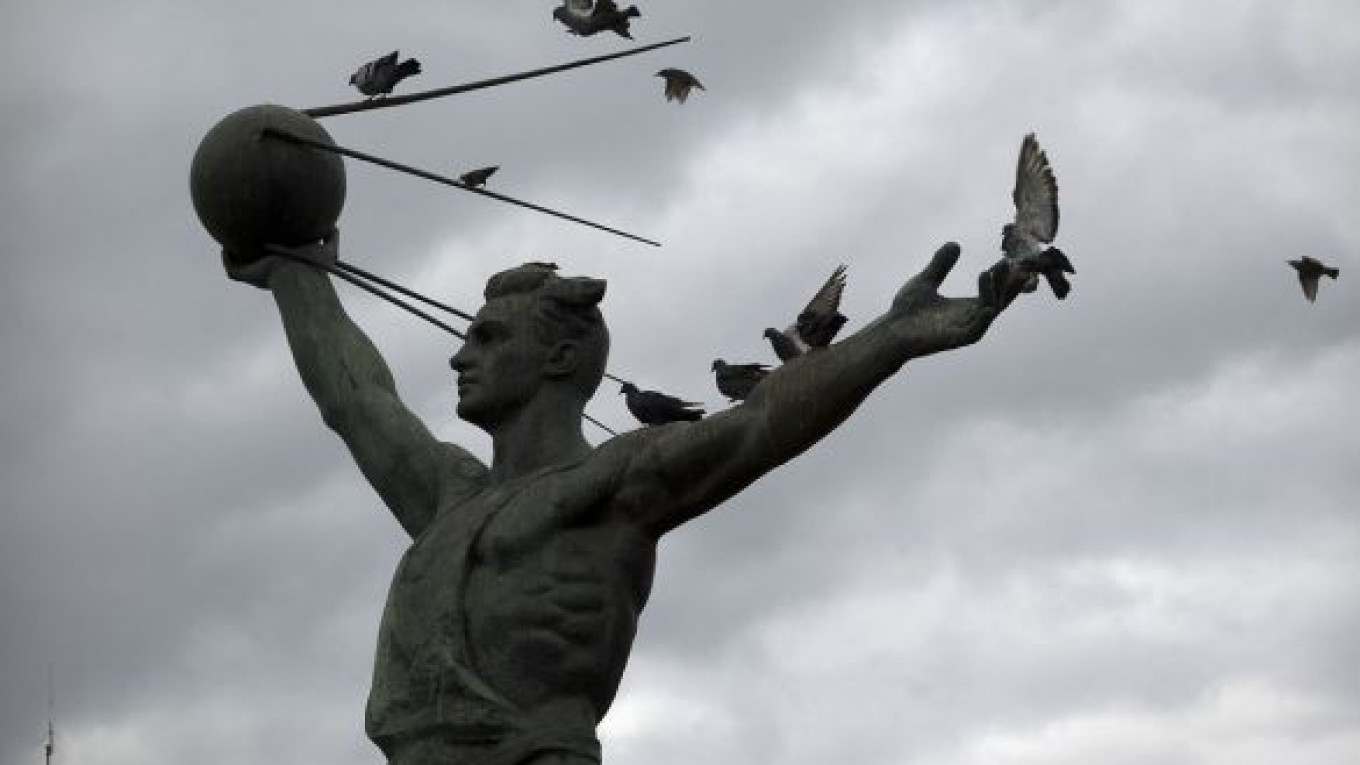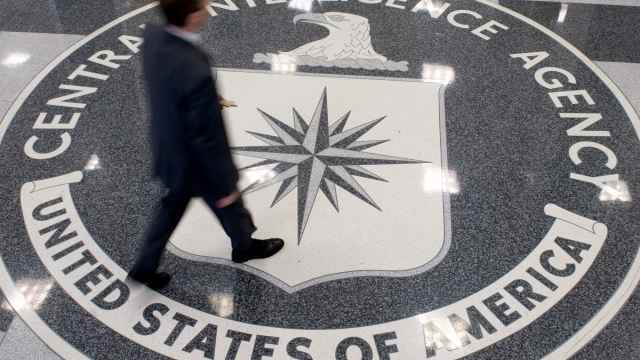Russia should set itself the "super goal" of building a large base on the moon that it could use to achieve "leaps" in science and to give a new sense of purpose to its troubled space program, Deputy Prime Minister Dmitry Rogozin said Tuesday.
Calling the task "big, prestigious and political," Rogozin said the country's space industry, which has suffered a string of costly and embarrassing failures, urgently needed a tangible stimulus to force it to focus.
"There is a lot of competition among countries in the space sector, and so we must have a big super goal that could pull forward science and industry, that would enable the country to escape from the morass of problems that have kept us captive for the past 20 years," Rogozin told Vesti FM.
He added, "Why not try to build a big station on the moon that would be a base for future 'leaps' of science?"
Russia's renewed focus on the moon may reflect a scaling back of ambition following a string of space failures and comes as other countries — notably China — are eyeing the moon with greater ambition.
Beijing plans to land its first probe there next year, even though it still has a long way to go to catch up with space superpowers Russia and the United States.
Scientists have said the moon may hold reserves of water and suggested that various minerals could possibly be mined there.
The Soviet Union put the first satellite and the first man in space, but those glory days are a distant memory. Crimped budgets and brain drain mean that Moscow has long been absent from deep space, and its space program appears to be in trouble.
Last year, a Russian mission failed to return samples from the Martian moon Phobos, and last month the failure of a Proton rocket caused the multi-million-dollar loss of Indonesia's Telkom-3 and Russia's Express-MD2 satellites.
"We are losing our authority and billions of rubles," Prime Minister Dmitry Medvedev told officials at a government meeting last month.
The Federal Space Agency has previously floated the idea of a moon base — possibly built in collaboration with the United States and Europe — and has also spoken about constructing a space station that would orbit the moon.
The agency is planning to send two unmanned missions to the moon by 2020, and there have been reports that it is weighing a manned mission there, too.
Russian scientists and cosmonauts have suggested that lunar colonizers could take shelter in what they believe is a network of underground caves left by the moon's volcanic past.
"It's too far and too expensive to Mars," space industry expert Igor Lissov told RIA-Novosti. "We must start with the moon. We must give ourselves realistic goals."
Rogozin said the moon project could be a jumping-off point for future deep space projects.
Space agency chief Vladimir Popovkin said Monday that Russia would recall the rocket type that caused the multi-million-dollar loss of Indonesian and Russian telecom satellites last month.
Such failures for Russia, which conducts some 40 percent of global space launches, risk undermining its standing in the market, strengthening competitors such as Europe's Ariane rocket.
Related articles:
A Message from The Moscow Times:
Dear readers,
We are facing unprecedented challenges. Russia's Prosecutor General's Office has designated The Moscow Times as an "undesirable" organization, criminalizing our work and putting our staff at risk of prosecution. This follows our earlier unjust labeling as a "foreign agent."
These actions are direct attempts to silence independent journalism in Russia. The authorities claim our work "discredits the decisions of the Russian leadership." We see things differently: we strive to provide accurate, unbiased reporting on Russia.
We, the journalists of The Moscow Times, refuse to be silenced. But to continue our work, we need your help.
Your support, no matter how small, makes a world of difference. If you can, please support us monthly starting from just $2. It's quick to set up, and every contribution makes a significant impact.
By supporting The Moscow Times, you're defending open, independent journalism in the face of repression. Thank you for standing with us.
Remind me later.






